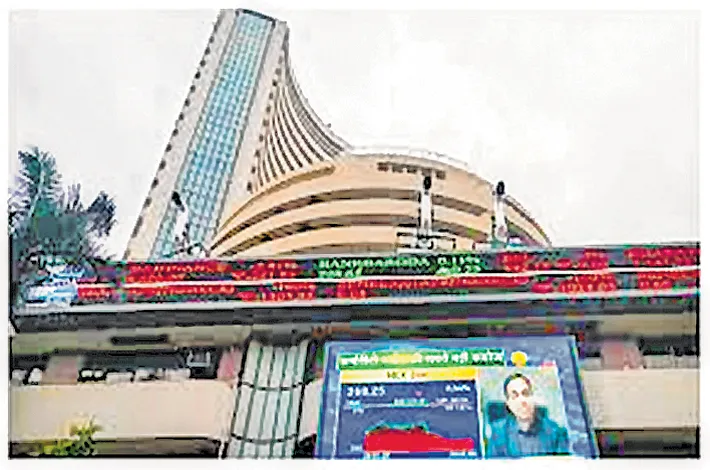Mkts soar as Fed, RBI rate cut hopes boost sentiment
27-11-2025 12:00:00 AM

Palazhi Ashok Kumar mumbai
In a powerful rebound that snapped a three-day losing streak, Indian equities surged on Wednesday, buoyed by a global “Santa Claus rally” (generally in November–December), renewed hopes of imminent US Fed and RBI rate cuts, cooling domestic inflation, firmer foreign inflows and softer crude oil prices.
The benchmark BSE Sensex vaulted 1,022.50 points to close at 85,609.51, while the NSE Nifty leapt 320.50 points to finish at 26,205.30, barely ten points short of its all-time peak. Buying was broad-based across sectors, with metals, energy and IT leading the charge. Mid-cap and small-cap indices also advanced more than 1%, underscoring robust investor participation.
Vinod Nair, Head of Research at Geojit Financial Services, said the domestic surge mirrored the buoyant sentiment across global markets. “The festive ‘Santa Claus rally’ is being supported by strong retail and domestic institutional inflows, while FII inflows, though modest, remain constructive,” he noted.
Globally, optimism strengthened as expectations firmed of a US Fed rate cut next month, accompanied by easing US Treasury yields and a weaker dollar. A 1% dip in crude oil prices further soothed inflation concerns. On the local front, the Reserve Bank of India is widely expected to introduce a 25-basis point rate cut in December, aided by moderating inflation and a dovish policy tone. Hopes of a potential truce between Russia and Ukraine added to the risk-on sentiment, lifting market confidence ahead of the New Year.
Dr V.K. Vijayakumar, Chief Investment Strategist, observed: “For retail investors, the wisest strategy is to avoid frequent trading and steadily accumulate high-quality growth stocks available at attractive valuations due to heightened volatility. Fundamentals suggest the market is headed for new highs; it is merely a matter of time.”
FIIs bought equities worth Rs 4,778 crore on Wednesday, and domestic institutional investors bought stocks worth Rs 6,248 crore. Fed interest rate changes affect stock markets by influencing cost of borrowing and global investment flows.








